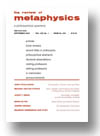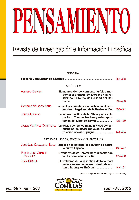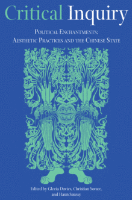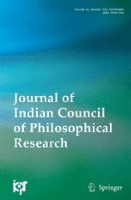
RTH-Research Trends in Humanities Education & Philosophy
Scope & Guideline
Exploring the Frontiers of Humanities and Philosophy.
Introduction
Aims and Scopes
- Interdisciplinary Research:
The journal promotes research that intersects various disciplines, including philosophy, education, music, and film studies, encouraging a holistic view of knowledge. - Philosophical Inquiry:
A core aim is to delve into philosophical questions and theories, often exploring historical and contemporary philosophical figures and their relevance to modern education. - Educational Innovation:
The journal emphasizes innovative approaches to education, particularly in the context of technology-enhanced learning, distance education, and the impact of digital transformations on teaching methodologies. - Cultural and Artistic Perspectives:
It seeks to explore the interplay between culture, art, and education, examining how artistic expressions influence pedagogical practices and philosophical thought. - Critical Analysis of Modern Challenges:
The journal addresses contemporary challenges within education and society, such as the impact of technology, crises in humanistic culture, and the evolving roles of educators and learners.
Trending and Emerging
- Impact of Technology on Education:
Recent publications highlight the challenge and transformation brought about by technology in education, particularly in online learning environments and the integration of innovative tools. - Philosophical Perspectives on Modern Issues:
There is an increasing focus on applying philosophical frameworks to understand and address modern societal challenges, such as mental health, identity, and the role of technology in shaping human experience. - Intermediality and Art Education:
Emerging themes explore the convergence of different media in educational contexts, particularly how music, film, and other art forms can enhance learning and philosophical discourse. - Educational Experiences and Teacher Development:
The journal is trending towards exploring the experiences of educators, especially in light of recent global challenges, and how these experiences inform teaching practices and professional development. - Philosophy and Ethics in Educational Practice:
There is a growing emphasis on the ethical dimensions of education and the role of philosophical inquiry in shaping educational policies and practices.
Declining or Waning
- Historical Philosophy:
Themes related to historical philosophical debates, while still present, are less frequently explored as the journal shifts towards more contemporary issues and practical applications in education. - Traditional Humanities Disciplines:
There is a noticeable decline in papers focused solely on traditional humanities subjects, such as classical literature and historical analysis, in favor of more interdisciplinary and applied research. - Static Educational Theories:
Discussions centered on static or traditional educational theories seem to be waning, as the journal leans towards dynamic, technology-driven educational practices. - Philosophy of Science:
While philosophy of science remains important, its specific discussions appear to be less frequent, possibly due to a shift towards more applied philosophical inquiries in educational contexts. - Narrowly Defined Topics:
Papers that focus on narrowly defined topics within philosophy or education are decreasing, reflecting a broader trend towards interdisciplinary and integrative research.
Similar Journals

REVIEW OF METAPHYSICS
Exploring the depths of metaphysical thought since 1975.REVIEW OF METAPHYSICS is a distinguished journal published by PHILOSOPHY EDUCATION SOC, INC, dedicated to advancing scholarly discourse in the field of philosophy. With an ISSN of 0034-6632 and an E-ISSN of 2154-1302, this journal has been a crucial platform for philosophical inquiry since its inception in 1975, converging its rich content from 1992 and continuously serving the academic community up to 2022. Based in the United States, specifically at 223 Aquinas Hall, Catholic University America, Washington, DC, it has secured a reputation for quality, reflected in its placement within the Q3 category of the 2023 Philosophy rankings, and a Scopus rank of 367 out of 806 in Arts and Humanities, placing it in the 54th percentile. Although it does not offer open access options, the REVIEW OF METAPHYSICS remains an essential resource for philosophers and students alike, fostering critical perspectives on metaphysical issues, and thereby contributing significantly to the advancement of philosophical studies.

STUDIES IN PHILOSOPHY AND EDUCATION
Bridging Philosophy and Pedagogy for Tomorrow's ScholarsSTUDIES IN PHILOSOPHY AND EDUCATION, a reputable journal published by Springer, is nestled in the dynamic intersection of philosophical inquiry and educational theory. With an ISSN of 0039-3746 and an E-ISSN of 1573-191X, this journal has been a significant platform for scholarly discourse since its inception in 1960. Located in the Netherlands, its impressive standing is reflected in its 2023 Scopus rankings, positioned in the Q1 category for Philosophy and Q2 in Education, alongside a commendable 90th percentile in the field of Arts and Humanities. Dedicated to fostering innovative thought and contributing to the evolving landscape of education and philosophy, the journal encourages submissions that explore diverse theoretical frameworks and practical applications. Although not an open-access publication, it remains an essential resource for academics, educators, and researchers aiming to deepen their understanding of the philosophical underpinnings of education. Engage with cutting-edge research and critical analyses that shape the future of educational practices and philosophical thought.

PENSAMIENTO
Innovating Ideas for a New Philosophical EraPENSAMIENTO is a distinguished journal published by the Universidad Pontificia Comillas Madrid, Faculty of Philosophy, providing a platform for scholarly discourse in the field of philosophy. With its ISSN 0031-4749 and E-ISSN 2386-5822, the journal has embraced Open Access since 2016, promoting wider dissemination of philosophical research and thought. Located in Spain, it has established itself as a vital resource for academics, researchers, and students interested in contemporary philosophical inquiries and discussions. As of 2023, PENSAMIENTO is ranked Q3 in the Arts and Humanities, specifically within the Philosophy category, highlighting its emerging impact in the scholarly community with a Scopus rank of #575 out of 806, placing it in the 28th percentile. With its coverage spanning from 2002 to 2024, PENSAMIENTO is committed to contributing to the ongoing evolution of philosophical thought and ensuring that fresh perspectives can thrive within academia.

Vestnik Sankt-Peterburgskogo Universiteta-Filosofiya i Konfliktologiya
Unveiling New Perspectives in Cultural and Religious StudiesVestnik Sankt-Peterburgskogo Universiteta-Filosofiya i Konfliktologiya is a prestigious academic journal published by ST PETERSBURG UNIV PRESS, focusing on the interdisciplinary exploration of philosophy, conflict studies, cultural studies, and religious studies. With its ISSN 2542-2278 and E-ISSN 2541-9382, this journal serves as a vital platform for researchers and scholars looking to disseminate their findings in these dynamic fields. The journal has shown impressive rankings in 2023, achieving Q1 status in Cultural Studies and Religious Studies, alongside Q2 in Philosophy and Q3 in Sociology and Political Science. This positioning, alongside its diverse publication scope since its convergence in 2017, underscores the journal's critical role in advancing scholarly dialogue and research. Though it operates under a closed access policy, the journal remains integral for professionals and students seeking rigorous academic discourse and insights into contemporary issues affecting philosophy and conflictology within a cultural context. Its influence and reach in the academic community contribute significantly to ongoing debates and studies, establishing it as an essential resource for anyone engaged in these disciplines.

Auster
Connecting ideas across the Humanities and Educational Sciences.Auster is a prominent open-access journal dedicated to advancing interdisciplinary research within the fields of Humanities and Educational Sciences. Published by the esteemed Universidad Nacional de La Plata, specifically by the Faculty of Humanities and Educational Sciences, this journal has been a cornerstone for scholarly discourse since its establishment in 1996. With an ISSN of 1514-0121 and an E-ISSN of 2346-8890, Auster ensures wide accessibility to innovative research and critical analyses. Its commitment to open access fosters an inclusive academic environment, allowing researchers, students, and professionals in Argentina and beyond to engage with high-quality content that stimulates new ideas and interdisciplinary collaboration. The journal strives to publish timely, relevant articles that explore contemporary challenges in humanities and education, thereby positioning itself as an essential resource for anyone invested in these dynamic fields.

VOPROSY FILOSOFII
Cultivating Ideas that Shape Contemporary ThoughtVoprosy Filosofii, published by the prestigious Russian Academy of Sciences - Institute of Philosophy, is a leading journal in the fields of Philosophy, Cultural Studies, and History and Philosophy of Science, boasting an impressive standing in its category with a Q2 rank across various disciplines as of 2023. This journal serves as a crucial platform for the exchange of innovative ideas and scholarly research, addressing key philosophical inquiries and cultural narratives that shape contemporary thought. Despite its lack of Open Access options, the journal's commitment to rigorous academic standards ensures that it remains a vital resource for researchers, professionals, and students seeking to engage with critical philosophical dialogue. With a history of publication reaching back to 2002 and a diverse scope covering linguistics, philosophy, and social sciences, Voprosy Filosofii continues to foster intellectual exploration from its base in Moscow, Russia.

CRITICAL INQUIRY
Exploring the Depths of Cultural CritiqueCRITICAL INQUIRY, published by University of Chicago Press, is a leading academic journal dedicated to the exploration of Cultural Studies and the broader Arts and Humanities landscape. With its ISSN 0093-1896 and E-ISSN 1539-7858, the journal has been at the forefront of critical discourse since its inception in 1976, cementing its reputation through rigorous scholarship and innovative contributions to the field. The journal is ranked Q1 in Cultural Studies and Q2 in Arts and Humanities (miscellaneous) as of 2023, underscoring its significance in shaping contemporary cultural critique. Currently positioned in the 95th percentile among Arts and Humanities journals and the 92nd percentile in Cultural Studies according to Scopus rankings, CRITICAL INQUIRY offers a platform for researchers and professionals to engage with cutting-edge theories and methodologies. Although it does not offer open access, its curated content remains essential for scholars aiming to deepen their understanding of complex cultural phenomena. By facilitating critical dialogue and interdisciplinary research, CRITICAL INQUIRY plays a pivotal role in advancing knowledge and insight within its academic areas.

Comunicazione Filosofica
Enriching Philosophy Through Original ResearchComunicazione Filosofica is an esteemed academic journal published by the SOC FILOSOFICA ITALIANA-SFI, dedicated to advancing the field of philosophical communication. With an ISSN of 1128-9082, this journal serves as a vital platform for scholars and practitioners within the realm of philosophy, catering to a diverse readership interested in exploring intricate philosophical ideas, theories, and practices. Although not categorized under Open Access, it provides insightful research and critical discourse that address contemporary philosophical challenges and enrich the academic dialogue. With contributions from notable philosophers and emerging thinkers alike, Comunicazione Filosofica showcases original articles, essays, and reviews that foster knowledge and understanding in the philosophical community. Based at the DIPT STUDI FILOSOFICI, UNIV STUDI DI ROMA LA SAPIENZA in Rome, this journal plays a pivotal role in international philosophical scholarship, making significant strides in both theoretical and practical aspects of the discipline. Researchers, students, and professionals are invited to engage with the rich content offered by this journal, which continues to influence and inspire the philosophical landscape.

Journal of Indian Council of Philosophical Research
Engaging minds with exclusive insights and critical essays.The Journal of Indian Council of Philosophical Research, published by SPRINGER INDIA, serves as a vital platform for scholarly discourse in the realm of philosophy. With an ISSN of 0970-7794 and an E-ISSN of 2363-9962, this journal is committed to advancing philosophical inquiry and engaging with contemporary philosophical debates. Although it is currently categorized in the Q4 quartile for Philosophy and retains a position in the 28th percentile within its Scopus category rankings, the journal aims to uplift philosophical dialogue and promote innovative ideas through exclusive articles, reviews, and critical essays. Based in New Delhi, India, the journal operates within a vibrant academic context and spans converged years from 2015 to 2024. While it is not an open-access journal, it offers essential insights and perspectives that contribute significantly to the field of philosophy. Scholars and students alike will find this journal an invaluable resource for enriching their understanding and fostering intellectual growth in philosophical research.

Epekeina-International Journal of Ontology History and Critics
Navigating the Intricacies of Ontology and CritiqueEpekeina - International Journal of Ontology History and Critics is a distinguished academic journal published by CENTRO INT RICERCA FILOSOFICA, dedicated to exploring the intricate dimensions of ontology, history, and critical analysis. As a vital source for scholars, professionals, and students in the fields of philosophy and history, this journal aims to foster interdisciplinary dialogue and advance understanding of ontological theories and their historical implications. Though currently not Open Access, the journal upholds rigorous academic standards reflected in its commitment to publishing high-quality research that shapes contemporary philosophical discourse. Researchers can look forward to thought-provoking articles and critical essays that challenge conventional perspectives and stimulate scholarly discussions. With an ISSN of 2281-3209, Epekeina serves as an essential platform for disseminating significant findings and fostering intellectual growth within the academic community.